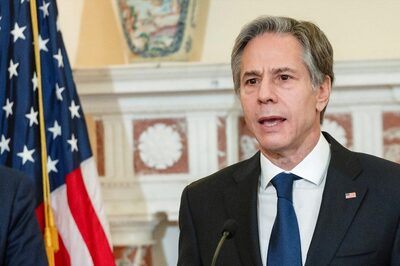
views
New Delhi: The Supreme Court’s landmark ruling in favour of the construction of a Ram Mandir on the disputed site in Ayodhya would also have a bearing on the judgment in the review petitions in the Sabarimala case on Thursday, the advocate on record for deity Ram Lalla said.
Explaining the reason behind his assertion, KN Bhat told News18 that in both cases, the top court of the land has to interpret matters of beliefs and faiths.
In the Ayodhya verdict, he said the court has held that the issue was not whether the disputed land was the birth place of Lord Ram but whether Hindus believed it was. “That has been proved and in these matters, belief should not be questioned,” he said.
Bhat said the main argument in the Sabarimala case also centered on belief. “The argument that the court (last year) did not accept fully was whether Hindus believe women's entry of a particular area for this temple must be banned. There is no scientific reason, but the devotees believe this is what it is,” he added.
A five judge Constitution Bench led by then CJI Dipak Misra had in its September 28, 2018, judgment, held that not allowing women in their “menstruating years” into the Sabarimala is ultra vires the constitution, and all women should be allowed to enter the shrine.
A total of 65 review petitions were filed against the order and a Constitution Bench led by CJI Ranjan Gogoi will pronounce its verdict on the pleas on Thursday.
The chief point of reconsideration is about the scope of the court’s interpretation and consequent intervention into matters of belief.
The judges will have to tread with abundant caution. They are mindful they will be walking on thin ice in matters of religion that intrinsically involve passion and belief of followers. At the same time, they know their allegiance to protecting the rights granted to every single individual under the Constitution of India.
The main contention of the petitioners was that the practice of not allowing women into the shrine was because of the celibate character of the deity. They also stated that constitutional morality should not be applied to matters of faith.
Bhat said that what was also important was that in the Sabarimala case, the people who objected to women not being allowed to enter the shrine were not women. “It is an organisation represented by five men - and no woman has come and said we have been denied the right to go to Sabarimala. So the religious practice of one religion has been challenged by someone else and taken (up),” the lawyer added.
He also pointed out the dissenting opinion of Justice Indu Malhotra in the Sabaramila case. “She had correctly pointed out that, what is my faith is my faith; no one can go and question it. Because religion is a matter of faith,” he said.
















Comments
0 comment